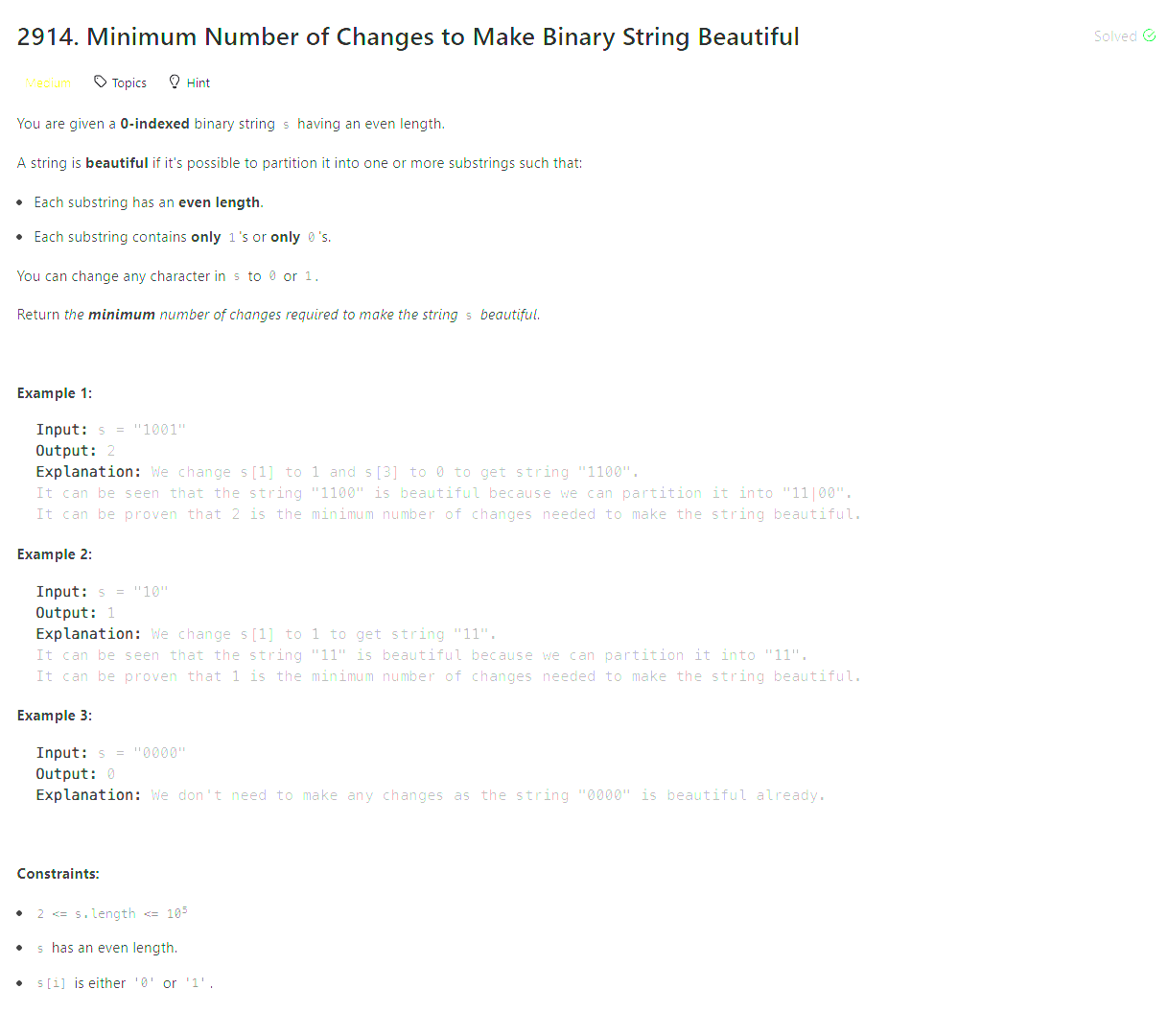Problem of The Day: Minimum Number of Changes to Make Binary String Beautiful
Problem Statement

Intuition
The problem involves finding the minimum number of changes required to make certain conditions meet within a string. My first intuition was to iterate through the string in pairs to detect mismatches between adjacent characters. For each mismatch, I would increment a counter to track the number of changes required.
Approach
To solve this problem:
- Start by calculating the length of the string.
- Initialize a result variable (
res) to count the number of required changes. - Loop through the string with a step of 2 to handle pairs of characters at positions
iandi+1. - For each pair, if the characters at
iandi+1are different, increment the counterresby one, since we need to change one of them to make the pair identical. - Finally, return
resas the total number of changes required.
This approach allows us to efficiently count the required changes in a single pass through the string.
Complexity
- Time complexity: \(O(n)\), where (n) is the length of the string. This is because we are iterating through the string once, checking pairs in constant time.
- Space complexity: \(O(1)\), as we are only using a fixed amount of extra space for the counter.
Code
class Solution:
def minChanges(self, s: str) -> int:
N = len(s)
res = 0
for i in range(0, N - 1, 2): # Ensuring we don't go out of bounds
if s[i] != s[i + 1]:
res += 1
return res
Editorial
Approach 1: Greedy
class Solution:
def minChanges(self, s: str) -> int:
# Initialize with first character
current_char = s[0]
consecutive_count = 0
min_changes_required = 0
# Iterate through each character
for char in s:
# If current character matches the previous sequence
if char == current_char:
consecutive_count += 1
continue
# If we have even count of characters, start new sequence
if consecutive_count % 2 == 0:
consecutive_count = 1
# If odd count, we need to change current character
else:
consecutive_count = 0
min_changes_required += 1
# Update current character for next iteration
current_char = char
return min_changes_required
Approach 2: Greedy (Optimized)
class Solution:
def minChanges(self, s: str) -> int:
min_changes_required = 0
# Check pairs of characters (i, i+1) with step size 2
for i in range(0, len(s), 2):
# If characters in current pair don't match,
# we need one change to make them equal
if s[i] != s[i + 1]:
min_changes_required += 1
return min_changes_required
"""
pythonic one liner:
class Solution:
def minChanges(self, s: str) -> int:
# Count changes needed for each unmatched pair
return sum(s[i] != s[i + 1] for i in range(0, len(s), 2))
"""